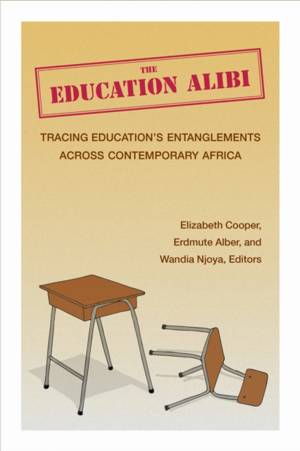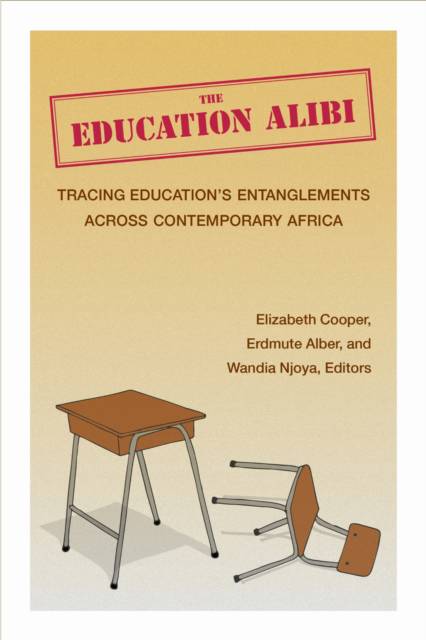
- Afhalen na 1 uur in een winkel met voorraad
- Gratis thuislevering in België vanaf € 30
- Ruim aanbod met 7 miljoen producten
- Afhalen na 1 uur in een winkel met voorraad
- Gratis thuislevering in België vanaf € 30
- Ruim aanbod met 7 miljoen producten
Zoeken
The Education Alibi
Tracing Education's Entanglements Across Contemporary Africa
€ 156,45
+ 312 punten
Omschrijving
Education is generally promoted as the key to the future of Africa in global development discourses about the continent. Education's official story in Africa continues to be one of innocence and public good, yet, since colonial times, education has constituted an area of intense contestation. The Education Alibi asks if it is possible that while claiming to be doing one thing, education has also been doing another in African communities. The concept of the "alibi" shines an interrogative light on institutions' and actors' use of education to divert scrutiny from other effects. Through ethnographic research and critical analysis across the continent, this volume focuses on people's lived experiences to demonstrate how contemporary education systems in fact deepen economic, racialized, gendered, urban-rural, linguistic, religious, and other intranational and international inequalities.
Specificaties
Betrokkenen
- Uitgeverij:
Inhoud
- Aantal bladzijden:
- 338
- Taal:
- Engels
- Reeks:
Eigenschappen
- Productcode (EAN):
- 9780472077755
- Verschijningsdatum:
- 22/10/2025
- Uitvoering:
- Hardcover
- Formaat:
- Genaaid
- Afmetingen:
- 152 mm x 229 mm
- Gewicht:
- 453 g

Alleen bij Standaard Boekhandel
+ 312 punten op je klantenkaart van Standaard Boekhandel
Beoordelingen
We publiceren alleen reviews die voldoen aan de voorwaarden voor reviews. Bekijk onze voorwaarden voor reviews.







